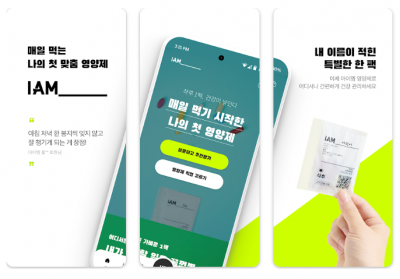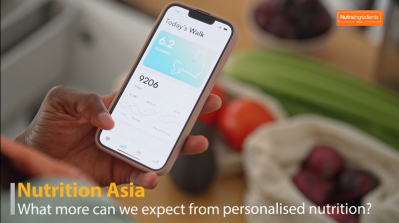Is personalised nutrition truly the future? Suntory on the challenging journey to ‘full personalisation’

Suntory may be best known for its alcohol and beverages business on the international platform, but the firm also has a rapidly growing health foods business as well as made multiple investments into this space.
One of these has been in personalised nutrition and supplementation business Rem3dy, which makes personalised gummy supplements offering a combination of seven nutrients per gummy from a choice of 32 nutrients in over 10 flavours, layering the seven nutrients of choice into a single 3D-printed gummy which is then delivered to the consumer.
“Consumers are asked to answer a series of questions which then determines which seven nutrients they most require supplementation of from the 32 nutrients provided – this has some of the most required options such as folic acid, vitamins A through E, iron, CoQ10, beta glucan, ginseng, ashwaganda, milk thistle and many more,” Suntory Future Business Development Department Senior General Manager Mikio Aoki told the floor at the recent Growth Asia Summit 2023 in Singapore.
“The seven-layer gummy is offered in a variety of flavours such as pineapple, blood orange, yuzu, green apple and more, and has various benefits over conventional supplements such as being more pleasant to consume and more convenient as multiple ingredients can be taken at once.
“Most importantly, the ingredients offered to each consumer in every gummy are fully personalised and combined via a 3D printer as opposed to conventional mass-produced ready-made ingredients, giving an added edge and earning the brand an 82% customer retention rate.”
That said, Aoki also highlighted that this sort of ‘full personalisation’ remains a challenge to bring to the market at scale in Japan due to a variety of challenges.
“’Full personalisation’ brings with it a large number of SKUs, which means there is no way to know the optimal number of combinations a brand can offer and the burden [of management] and on the environment will increase as the number of SKUs increase,” he said.
“This huge number of SKUs can also be very confusing for consumers who may not know what to choose in the end – even the seven-layer gummy model can offer over one billion potential combinations right now.
“The other major challenge is with production – ‘full personalisation’ currently is not at a stage where immediate production is possible, and even with Rem3dy a certain amount of time is required before consumers can receive their products, so it comes down to how long the consumer is willing to wait to receive this, and this uncertainty makes it a challenge for a business to enter the market in a big way.”
Other concerns he highlighted included how to thoroughly understand individual health issues and solve these such as with potentially collecting biomarkers as opposed to a questionnaire on lifestyle, but with new logistical challenges involved; as well as the need to tackle other personal factors such as allergies.
Semi-personalisation
As such, despite the huge potential of 3D printed personalised products, at present the personalised nutrition industry in Japan is still largely dominated by semi-personalised solutions.
“At Suntory, we do believe in a future vision of personalisation for food and nutrition, such as 3D food printers that can provide a wide variety of personalised foods and cuisines becoming the norm, with individual needs and preferences stored in a database of food and memory beyond time and space,” he added.
“However, at this point in time semi-personalisation is what is really strong – in Japan for example where there is a JPY903bn (US$6.07bn) health foods market that is showing steady growth, the demand for personalisation is increasing but most services from foods to healthcare to sports to skincare are semi-personalised.
“So even though ‘full personalisation’ is likely to be required in the future, enabled by data and 3D food printers, the hybrid strategy now is stronger and mostly offered via online services.”
Some of the semi-personalisation food and nutrition examples Aoki cited included personalised complete meal firm Koredake and personalised home-cooked meals firm Green Spoon.



















